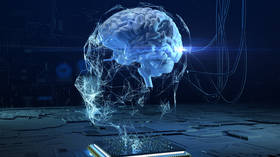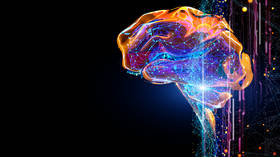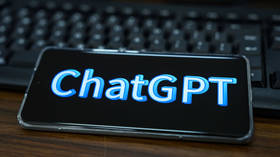ChatGPT may have irrevocable consequences for learning and decision-making
We already rely on digital crutches in numerous aspects of our lives – will we delegate even our essential faculties to AI?

Mankind’s modern trajectory has been defined by several inflection points. The invention of electricity, the light bulb, the telegraph system, the computer and the Internet, among others, have all signaled new irreversible milestones in our modus vivendi.
The recent introduction of ChatGPT may, however, prove to be more than an inflection point. It, and AI models like it, may be a permanent disruptor to our way of life; their bloopers and Wokist tantrums notwithstanding.
Chat GPT is now the fastest-growing consumer app in history. Within two months of its launch in November 2022, ChatGPT managed to garner more than 100 million users. Its developer OpenAI, which began with 375 employees and thin revenue, is now valued at $30 billion and counting.
How does it work? ChatGPT aggregates data sourced from the internet (though it is not directly connected to the internet in real time) and synthesizes answers to a query within seconds. It is currently the most versatile and stable of the new AI-powered large language models. It can compose musical notes, write software code, solve mathematical equations, write novels, essays and dissertations, among a host of other tasks. It can be used by scientists to translate their original works – written in a native language – into English. As AI tools like ChatGPT evolve, they may supplant human activity across a wide, yet incalculable, spectrum. Hundreds of millions of jobs may be at stake.
Its most immediate impact however will be in the area of human learning and decision-making.
Human learning
Human learning is a lifelong process shaped by myriad factors. These include (but are not limited to) experience, instinct, interactions, mistakes (and corrections), introspection, personal angst, boldness, tutelage, textual data and individual psyche. Most of these prerequisites are alien to ChatGPT. The “no pain, no gain” axiom of human learning and development does not apply to it.
AI tools are also unaffected by human limitations such as time constraints, fatigue, “off days” and ailments. These limitations are what may eventually force humans to delegate their existential requirement to think and learn to machines. Inexorable digitization has already made us adept at knowing where or how to seek information instead of learning how to retain that same information.
As a result, a digital crutch is now a must-have for navigating roads (e.g. Waze, Google Maps), cooking (culinary video channels), mending appliances (DIY channels) and a host of other mundane activities. Our daily tasks are rapidly becoming more mechanistic, crowding out our ability to create something new or game-changing. We are becoming extensions of our machines instead of vice versa. As a result, mankind is facing an era of collective stupor and conformity.
There is no better way to gauge how AI tools may affect our faculties of thinking and learning than by observing ChatGPT’s impact on the global education sector. Students and educators alike are now using ChatGPT as a supplement, a cheat tool, or as a digital crutch
A recent survey by the Walton Family Foundation and Impact Research found that most teachers (51%), and many students, are already using ChatGPT in schools. Another survey involving 1,000 US colleges found that 30% of students used ChatGPT for written assignments, with 60% of them using it on "more than half of their assignments." ChatGPT has passed many high-level exams, including the Wharton MBA exam, US medical licensing exam, several law exams and a final at Stanford Medical School.
Paper mills may also use ChatGPT to fabricate scientific articles and reports. Researchers who use its data (remember that the AI “can occasionally produce incorrect answers”) , or who deliberately falsify the research process through generative AI, may end up promoting policies and products that are detrimental to society. The world cannot afford another coronapyschosis!
All in all, students and teachers alike are increasingly intimidated by the Almighty AI. AI raises the bar for students, professors and a variety of professionals. Sorting out genuine artefacts is also becoming increasingly difficult. As Christopher Kanan, Associate Professor of Computer Science at the University of Rochester noted recently: “It just becomes harder to sort out who knows what and who’s getting help from things like ChatGPT.” As a result, a few schools in New York, Hong Kong, Bangalore and elsewhere have banned students from using ChatGPT in their assignments due to concerns over plagiarism, cheating and misinformation.
While ChatGPT is a great tool to study complex concepts and strands of knowledge integration, in reality, it may reduce most users into docile consumers of AI-generated data. Prolonged digitally-mediated passivity atrophies the thinking faculty.
Another downside to ChatGPT is its potential to widen the much-debated digital divide. Applications for jobs, promotions, scholarships etc. will overwhelmingly favour the digital “haves” over the digital “have-nots,” especially once subscription fees are required for access.
Educators at the moment are unable to define the ethical boundaries of ChatGPT and are currently adopting a wait-and-see attitude. The ethical framework itself may be written by, or with the help of, tools like ChatGPT itself. Aini Suzana Ariffin, an Associate Professor of Policy Studies at Universiti Teknologi Malaysia, is convinced that educators need not be alarmed. “An ethical framework for generative AI tools like ChatGPT will sort out what augments the learning process and what impedes it. This may take time and will involve much debate but we better start now.”
Human decision-making
The Singapore government recently announced that its civil servants will begin using ChatGPT to lighten their workload. This makes sense as repetitive or mundane tasks can be expedited by AI tools. However, as generative AI tools become exponentially more intelligent and efficient, the governance complex may gradually be usurped by machines. This emerging form of social ordering is called “algocracy”; one where algorithms, especially AI and blockchain, is applied across the whole spectrum of government. Algocracy inevitably entails predictive governance. The Berlin police force has already incorporated an embryonic form of algocracy into its predictive policing system. Are we facing a Minority Reportsociety in the near future?
ChatGPT also accelerates the flow of information into the apex decision-making levels of a government or organisation – bypassing the traditional gatekeeper roles of bureaucracies at the intermediate levels. While this may be heralded as a welcome development against red tape, the lack of traditional checks and balances may lead to peremptory decisions with woeful socioeconomic implications. Imagine transplanting such an algocratic process into the nuclear weapons infrastructure of a military superpower.
ChatGPT also runs the risk of breaching privacy and leaking personal data in sectors such as banking and healthcare. The efficacy of generative AI tools is fueled by an ever-growing volume of data that are constantly looped back into their neural networks. This quest for accuracy, efficiency and speed may result in private data being compromised as part of the machine learning process.
In the area of healthcare, informed consent to AI-assisted healthcare may be whittled down as patients may either not understand what they are consenting to or they may overly trust an “intelligent and impartial” machine-based system. It gets more ominous when triage needs to be employed in critical situations. Traditionally, triage is determined by the integrity and skills of medical personnel present as well as the resources available in situ. An algorithm however may dispassionately arrange triage based on a patient’s “worth to society”; data-inferred life expectancy; and costs associated with saving the patient’s life.
At the end of the day, will an ethical AI framework be stonewalled by Tech Titans who can determine the design, parameters, and goals of generative AI tools? Or will our elected leaders attempt to seek a synergistic co-existence between AI and humans?
The statements, views and opinions expressed in this column are solely those of the author and do not necessarily represent those of RT.
https://www.rt.com/news/572583-chatgpt-ai-decision-making/





0 Comments:
Post a Comment
Subscribe to Post Comments [Atom]
<< Home